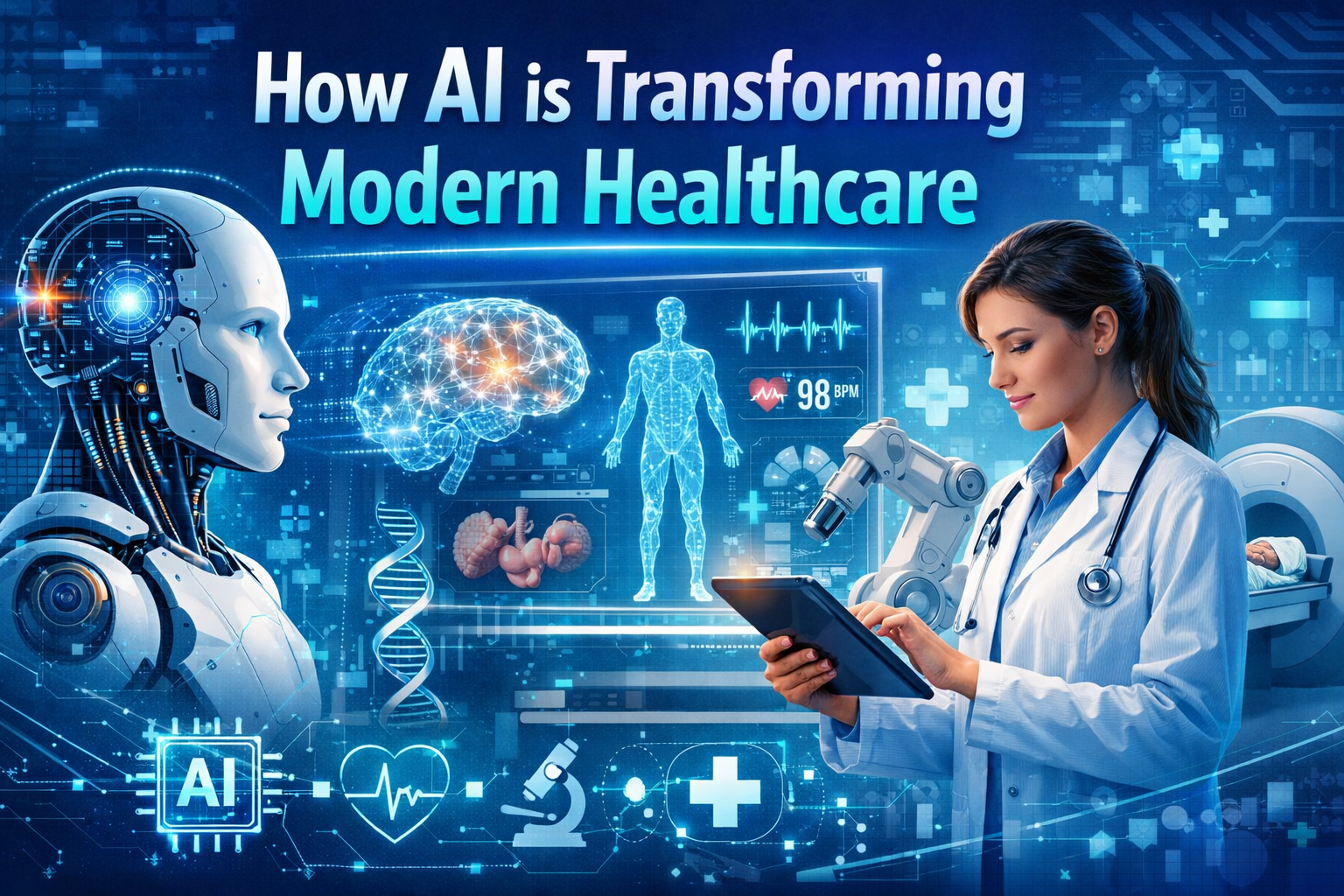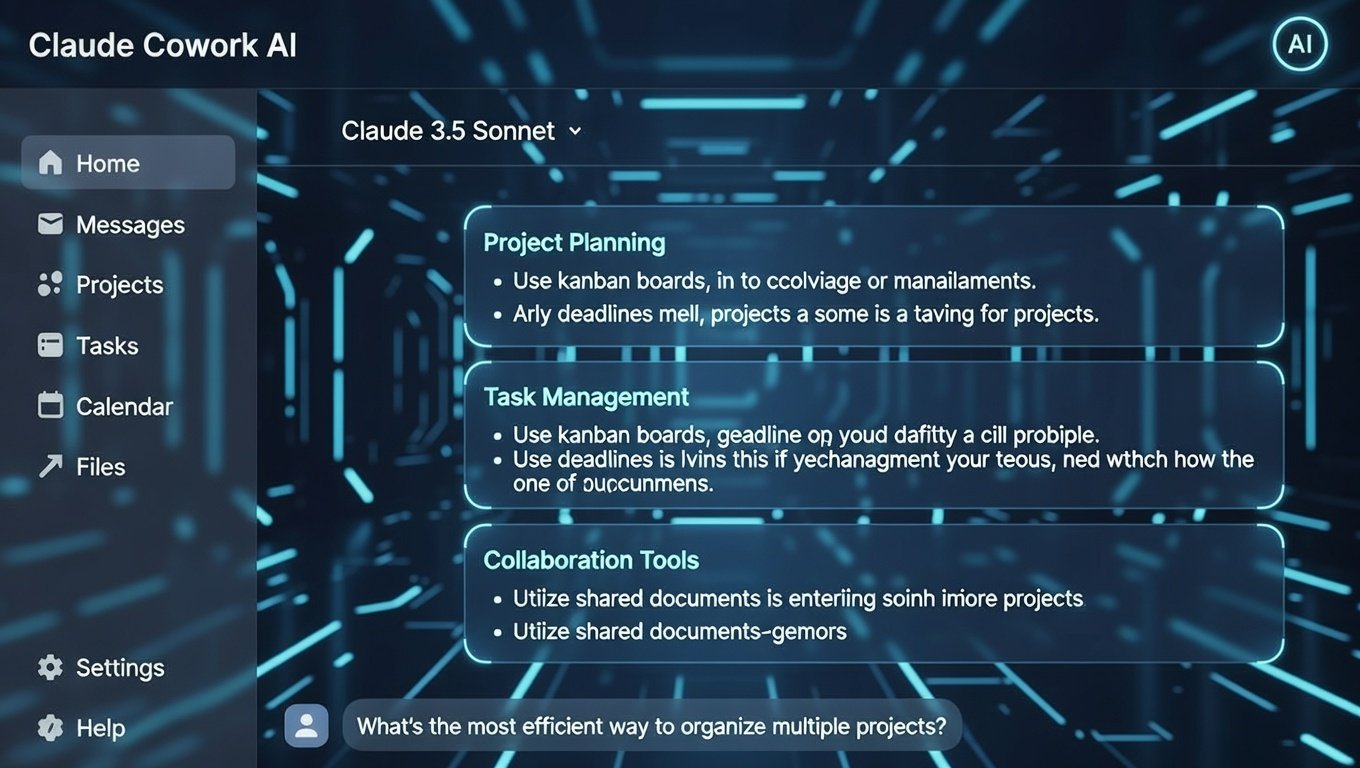Artificial Intelligence (AI) is rapidly becoming one of the most transformative technologies in healthcare today.
From automating repetitive tasks to enabling more accurate diagnoses, AI is helping to improve the quality of care and reduce costs in a variety of ways.
In this article, we will explore Eight key ways that Artificial Intelligence is revolutionizing healthcare. Also, learn about How AI is being used in the modern healthcare sector.
Automating repetitive tasks
One of the most obvious ways that AI is impacting healthcare is by automating repetitive tasks, such as data entry and image analysis.
Machine learning algorithms can quickly process large amounts of data, freeing up doctors and nurses to focus on more important tasks.
For example,AI-based tools can automatically extract relevant information from electronic health records (EHRs), making it easier for doctors to access patient information and make more informed decisions.
Also, AI diagnostic tools can analyze medical images, such as CT scans, to detect signs of disease, reducing the need for human interpretation.
Improving diagnostic accuracy
Another key way that AI is transforming healthcare is by improving diagnostic accuracy. Machine learning algorithms can analyze large amounts of data, including patient symptoms, lab results, and medical images, to identify patterns that may indicate a certain condition.
This can help doctors make more accurate diagnoses, especially for rare or complex conditions.
AI technology-based diagnostic tools are being developed to detect skin cancer, lung cancer, and other types of cancer more accurately than traditional methods.
Artificial intelligence tools are being used to analyze genomic data, which can help identify genetic predispositions to certain conditions and guide personalized treatment plans.
Personalizing treatment plans
AI is also helping to personalize treatment plans for patients. Machine learning algorithms can analyze patient data, such as EHRs and genomics data, to identify factors that may influence treatment outcomes.
AI tools can help identify which patients are most likely to respond to a particular drug, or which patients are at the highest risk for a certain complication.
This can help doctors make more informed decisions about which treatment options to pursue and can help to improve patient outcomes.
Enhancing drug development
AI is also playing a key role in enhancing drug development. Machine learning algorithms can analyze large amounts of data, including genetic data and information from clinical trials, to identify potential drug targets and predict how drugs may interact with the body.
This can help to speed up the drug development process and reduce the cost of developing new drugs.
Improving population health management
AI is helping to improve population health management. Machine learning algorithms can analyze data from a variety of sources, including EHRs, claims data, and social media, to identify patterns that may indicate a public health threat.
AI solutions can help identify outbreaks of infectious diseases, such as influenza, and predict which areas are most at risk.
These tools can help identify patients who are at high risk for certain chronic conditions, such as diabetes or heart disease, and help to intervene before the condition becomes more severe.
Streamlining clinical trials
One of the most time-consuming and costly aspects of bringing new drugs to market is the clinical trial process.
AI can help to streamline clinical trials by automating tasks such as patient recruitment, data collection, and analysis.
AI-based tools can analyze data from electronic health records to identify potential study participants and predict which patients are most likely to comply with the study protocol.
This can help to reduce the time and cost associated with clinical trials and bring new treatments to market more quickly.
Improving patient engagement and satisfaction
AI is also helping to improve patient engagement and satisfaction by making healthcare more convenient and personalized.
AI chatbots and virtual assistants can help patients schedule appointments, refill prescriptions, and access their health information.
These AI tools can help to personalize patient education and support, such as by providing tailored health information based on a patient’s specific condition or treatment plan.
By providing patients with more convenient and personalized healthcare, AI can help to improve patient engagement and satisfaction.
Addressing physician burnout and shortage
One of the major challenges facing healthcare today is physician burnout and shortage.
AI can help to address these issues by automating repetitive tasks and allowing physicians to focus on more important tasks.
It can help to improve the efficiency of healthcare delivery, which can help to reduce the amount of time physicians spend on administrative tasks.
By addressing physician burnout and shortage, AI can help to improve the quality of care and reduce costs.
In conclusion, AI is revolutionizing healthcare by automating repetitive tasks, improving diagnostic accuracy, personalizing treatment plans, enhancing drug development, and improving population health management. With these advancements, healthcare providers can provide more efficient and effective care and improve patient outcomes.
About the Author

Nancy Powell is an Expert in Automation with 12+ years of experience with global clients in the areas of Artificial Intelligence, Machine Learning, and Gen AI.




